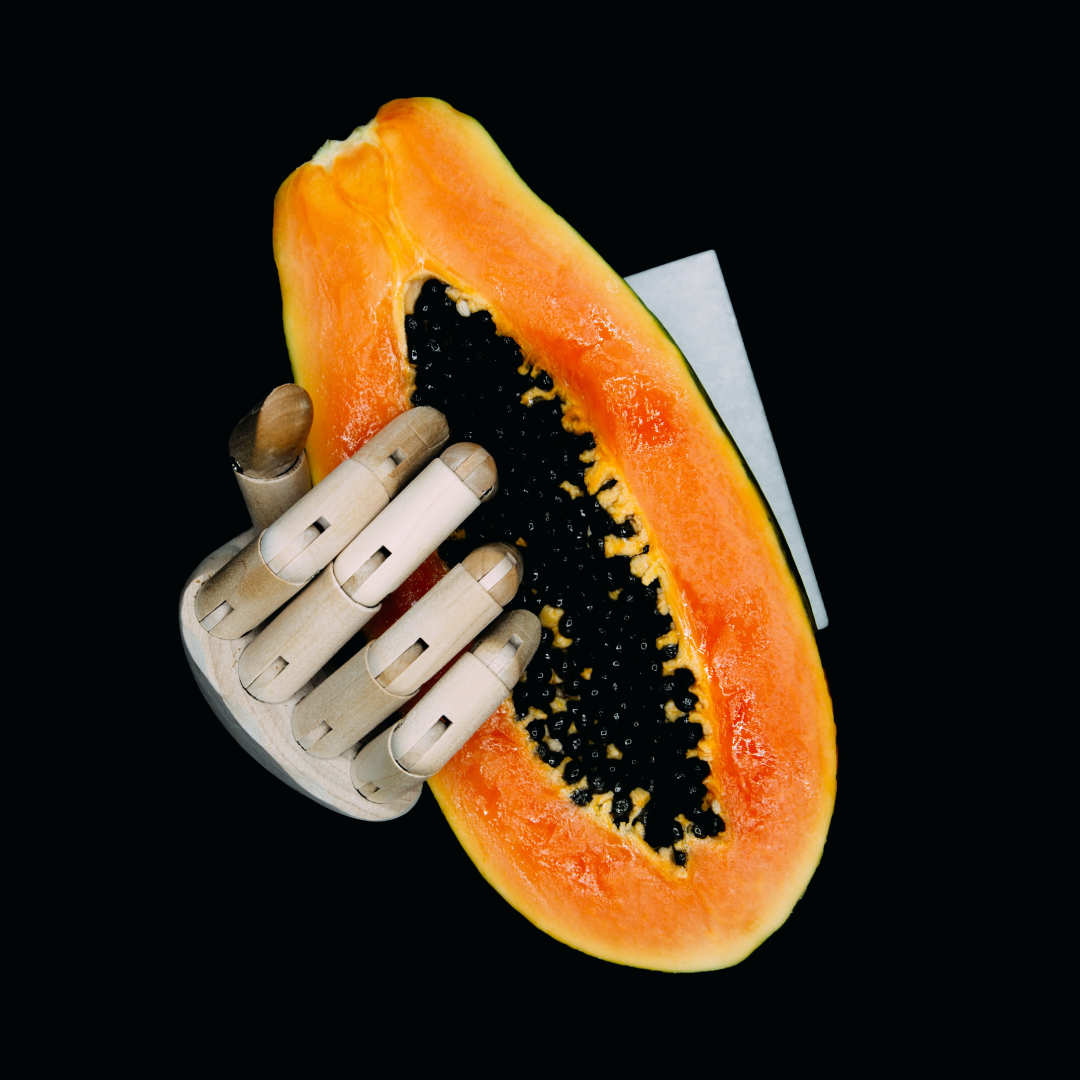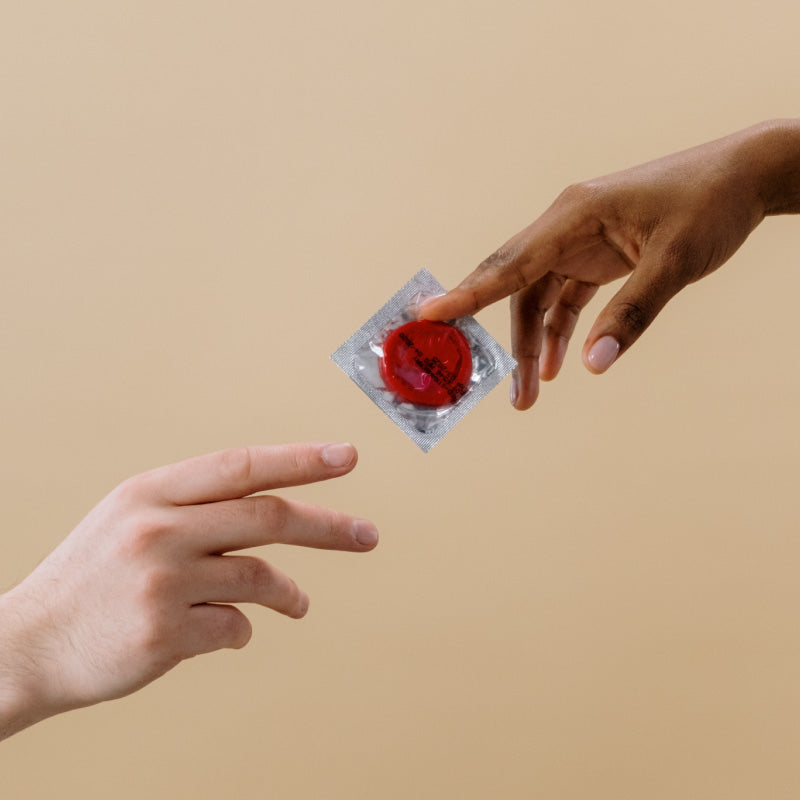Just like your gut, your vagina thrives on a healthy balance of bacteria, and your vagina's pH levels can impact your health down there massively. Learn how to watch for warning signs of an unbalanced vagina pH and how to restore your pH balance here.
The Basics of pH Levels
Not sure what pH levels even are? Don’t worry, we’ve got you. The pH scale is used to measure the acidity of a substance, rated from 0 (most acidic) to 14 (least acidic). And, in case you need reminding, your body is amazing! It thrives on different pH levels in different areas, to enable you to digest food, fight infections and perform other daily functions.
Your vagina’s pH levels are normally acidic, with a pH of around 5 or lower (Flo.health), which decreases as you get older. A heathy vagina with a normal pH level, will produce fluids that contain acids to protect against germs, killing bacteria, parasite and fungi. These fluids also help to prevent your vagina from becoming dry.

What Can Impact Your pH Balance?
There are several factors, both medical and lifestyle, that can affect your vagina pH balance. It is good to know what could have an impact and tip the balance.
Your Period
Period blood has a higher pH level than your vagina, so during menstruation your vagina’s pH levels will increase.
Clothing
Tight clothing, and in particular clothing that is made from synthetic materials, is not great news for your vagina. Likewise, underwear that doesn’t allow your vagina to breathe can have an affect on your pH levels.

Infections
Vaginal infections can also affect your pH levels, and should always be treated as soon as you spot the warning signs. Common yeast infections such as thrush (candida vaginosis) can also have an impact and create an imbalance.
Bacterial Vaginosis
Bacterial vaginosis (BV) is caused by an overgrowth of bad bacteria in the vagina, which occurs when the pH balance is disrupted. The main symptoms of BV are usually a notable change in vaginal discharge (usually thin, watery consistency with a very strong odour) and vaginal itching.
UTI
Urinary tract infections (UTI) do not specifically cause an imbalance in your vagina pH levels, but you are more likely to develop one if things are out of sync.
Douching
Vaginal douching actually increases the risk of upsetting the delicate pH balance, potentially leading to infections.
During douching, water is flushed up inside the vagina, which clears out vaginal secretions that are actually there for a reason, and that are totally normal in a healthy vagina. Douching can potentially remove good bacteria from the vagina too, which can lead to an overgrowth of bad bacteria and, in turn, an infection.
According to the NHS, there is also no evidence that douching will protect against sexually transmitted diseases or infections. In fact, its more likely to increase your risk, so definitely best left well alone.
Antibiotics
Antibiotics work by killing bacteria in order to fight infections. Unfortunately, this means that the vital good bacteria are killed too, which can upset your vagina pH levels and lead to an overgrowth of yeast.
Talk to your healthcare provider if you are concerned about antibiotics you have been prescribed.
Hygiene
Poor personal hygiene can lead to an imbalance in your vagina’s pH levels, so staying clean is vital for maintaining a healthy vagina pH. It is best to avoid overzealous washing too. Instead, wash daily with mild soap and water, and always wipe front to back when using the loo.
If you work out or swim, always change your clothes afterwards to stay fresh, and to avoid creating a moist environment where bacteria and yeast can grow.
Always avoid using heavily fragranced soaps, shower gels or wipes. These can remove the good bacteria that your vagina needs to stay healthy.
During your period, you might want to wash your vagina more than usual, which is absolutely fine – but again, no perfumed soaps and be gentle!

Menopause
During the menopause, your vagina pH levels will change, thanks to the drop in your body’s oestrogen levels. This drop takes your vagina pH levels to over 5, less acidic than usual.
It is worth noting here that these changes can also potentially lead to an increased risk of infection or UTI.
Sexual Activity
Just like your vagina, the penis also has its own bacteria, so having sex can increase the risk of bacteria entering the vagina and upsetting the balance. Semen also has the ability to increase the natural pH levels temporarily.
Spotting Symptoms of an Unbalanced pH
The signs and symptoms of unbalanced pH levels may differ from person to person, but most women will definitely notice that things are not quite as they should be if there is an unbalance. Often, bacterial infections and other infections go hand in hand with a vagina pH that is out of sync, so it is always worth knowing the early signs and taking action.
Vaginal Discharge
If you track your vaginal discharge through your cycle, you’ll probably spot any changes to your vaginal discharge straight away.
Julie Bowring, consultant in sexual and reproductive health at London Gynaecology, advises:
‘When the vagina pH level changes it can lead to an increase in unwanted bacteria inside the vagina. The common signs are a change in vaginal discharge. The discharge may also change in colour or texture and can range from white, to grey or even green.’
Remember that discharge is a normal sign that all is well with your vagina, and that it changes at certain times during your cycle: from barely noticeable at the start of your cycle (and as you are bleeding during your period, you probably wouldn’t notice it anyway), to fairly dry just after your period.
It then changes to sticky, white and creamy as your body’s levels of oestrogen start to rise, and then around ovulation it will be wet, slippery, clear and stretchy in consistency.
Once ovulation is over, your vaginal discharge will be more sticky again, before you head back into your period. All of these changes are perfectly normal and nothing to be concerned about.
Pain, Itching or Burning
One of the most easily recognisable (and uncomfortable, sometimes painful) symptoms that most women experience when their pH is unbalanced? Itching and irritation around the vagina.
Julie Bowring also notes that ‘women can also experience discomfort inside the vagina and as a result sex may feel uncomfortable’.
If you do experience pain during sex, it is always a good idea to pay attention. Besides an unbalanced vaginal pH, there can also be other reasons for this, such as uterine fibroids. So, if you are concerned, always speak to a healthcare provider.

Changes in Smell
Another early and very noticeable sign of an unbalanced pH is that your vagina’s natural odour changes. This change can often be embarrassing, and is one of the reasons why we very rarely talk about the issues that arise when things are not in check down there. ‘Women often report a strong smell which classically smells fishy’, says Julie Bowring.
If you experience this, do not be tempted to over wash or to use perfumed products to try and hide the odour. The change in smell is your body’s signal to you that all is not well, and that you should take action to correct the imbalance.
How to Balance Your pH
Many women will experience some imbalance in their vaginal pH during their lifetimes. It is fairly common, but also thankfully easily treatable. So, relax. It is possible to balance your vaginal pH, and to avoid infections.
Practice Healthy Sex
It is a good idea to practice safe sex, as using condoms will prevent bacteria from your partner’s penis entering your vagina, reducing the risk of infections.
It is also a healthy habit to empty your bladder after sex, so that any bacteria present in the urethra can be cleared away. And, while we are on the topic of using the loo, don’t forget to always wipe front to back!

Incorporate Probiotics Into Your Diet
Taking probiotics is a great way to prevent an imbalance of vagina pH and can help to maintain the healthy balance overall. Laura Southern, nutritional therapist at London Gynaecology, says,
Not sure which probation is most beneficial? Laura explains:
In fact, being aware of your diet in general is a good idea as there are certain foods you can incorporate that will help you to maintain a healthy pH balance. Foods that are fermented and high in fibre are great, and doctors also recommend yogurt and cranberry juice too. Staying hydrated helps too, so drink your water.

Avoid Douching
We have already covered douching in a little more detail earlier on in this article, but it is valuable to repeat. Douching is really not necessary in terms of hygiene. Your amazing vagina is able to clean itself, so just mild soap and water is all you need.
Use Period Pants Instead of Tampons and Pads
Did you know that most tampons and pads are actually made using chemicals, and some even contain perfumes, to make your vagina smell ‘better’? Knowing what we know about how the vagina is actually self-cleaning, and how perfumes and chemicals disrupt the healthy pH balance, this can only be bad news. Besides, your vagina is supposed to have an odour. There is no need to disguise that healthy smell, even if you are on your period!
Period pants are a much kinder option – to you and to the planet. Our WUKA period pants are not only moisture wicking and fully breathable, but they are suited to all flows, all body shapes and sizes and all budgets too.
Period pants will fully absorb even the most heavy period without the need to resort to potentially harmful tampons or pads – with the added bonus of keeping your vagina nice and fresh, free from the moisture that bacteria and yeast love so much.
We recommend our bestselling Cycle Sets to get your started, and check out our WUKA Swim Bikini Briefs too, great for light period flow days where you want to get cracking with your usual routine.
Overall, period pants will ensure that you are protected during menstruation – from leaks and from infections. They can be washed on a normal cycle with your other clothes (remember, no harsh biological detergents, and skip the fabric conditioner!) and even better if you can hand wash and line dry.
About London Gynaecology:
London Gynaecology is an established private gynaecology practice providing daily services to women. Led by a team of consultant gynaecologists who hold senior positions in the NHS and bring a wealth of knowledge and expertise to London Gynaecology.